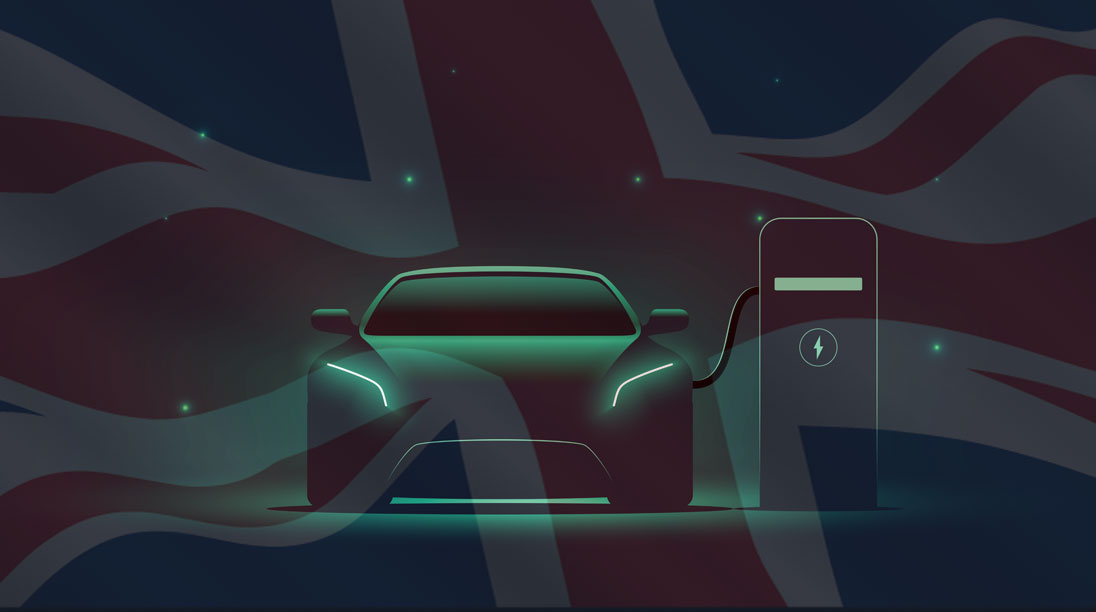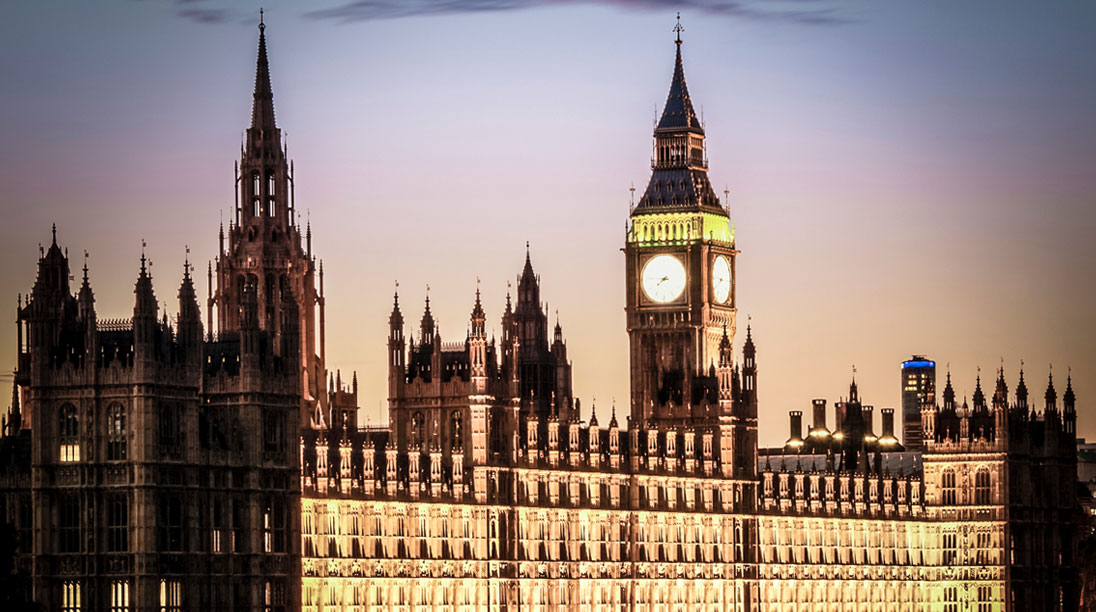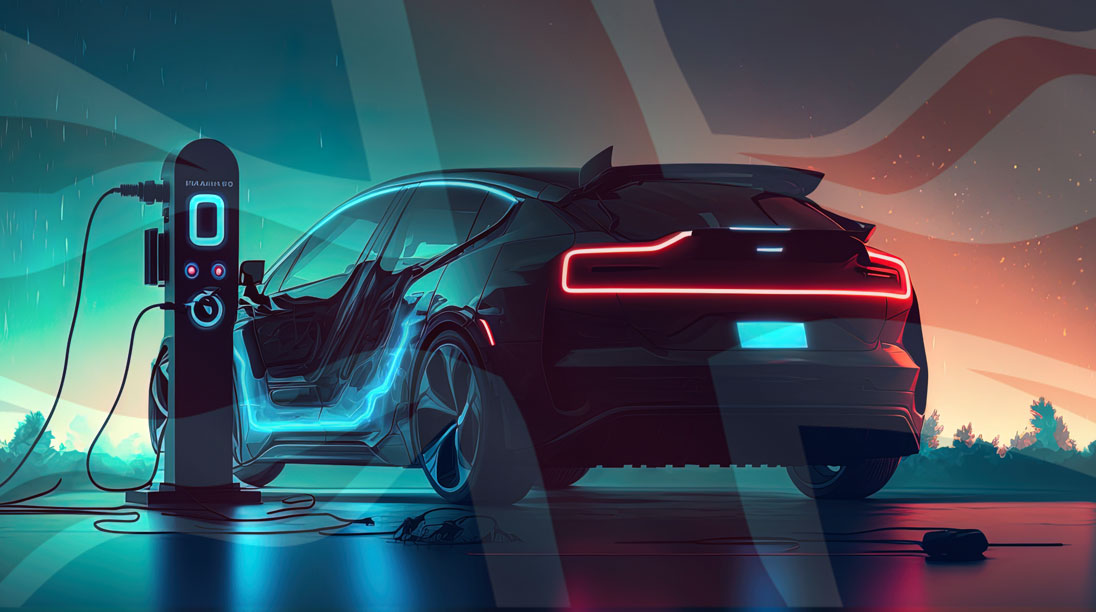UK prime minister Rishi Sunak has announced a five-year delay in the ban on the sale of new petrol and diesel cars, meaning a requirement for all new cars to be ‘zero emission’ will not come into force until 2035. This brings the UK into line a similar target date in Europe.
As reported recently in GoAutoNews Premium “the resolve of British politicians to ban the sale of new ICE vehicles in the UK from 2030 appears to be wilting as a possible electoral backlash from motorists and their families begins to sink in.”
In a speech yesterday that contained the backflip, Mr Sunak said moving too fast on green policies “risks losing the consent of the British people.” The backflip has raised more concerns about major uncertainty surrounding the future of EVs production targets by OEMs who are committing to an EV future that may be thrown into disarray.
The backflip has raised more concerns about major uncertainty surrounding the future of EVs production targets by OEMs who are committing to an EV future that may be thrown into disarray.
The 2030 deadline was seen as good news for OEMs struggling to sell EVs into markets that have cooled in their desire to have electric vehicle options. Recent surveys from Cox Automotive in the US and carsales.com.au in Australia show increasing caution by EV buyers. Now the delay will add to the OEM woes.
Mr Sunak’s announcement is counter to his government’s assurances that the end of internal-combustion engined (ICE) vehicles would remain on a strict time frame. At that time, Mr Sunak said he believed that delaying the deadline would be damaging to the automotive industry.
Cox Automotive’s insight and strategy director, UK-based Philip Nothard, said of the delay that: “Political flip-flapping will attract much criticism, confuse consumers and compromise EV infrastructure investment and is more about currying voter favour ahead of an election than what’s best for the climate or automotive sector.”
“Many manufacturers have already committed to a hybrid and EV-only model range ahead of 2030, while others will have drastically reduced the number of petrol and diesel models they produce by this date.
“Let’s not forget that the UK represents just shy of 3 per cent of global new car sales and manufacturers are focused on the global picture, not the local one.”
OEMs are opposed to the delay with Ford Motor Company UK chair and managing director Lisa Brankin stating on her LinkedIn page that “Our business needs three things from the UK government: ambition, commitment and consistency. A relaxation of 2030 would undermine all three.”
“This is the biggest industry transformation in over a century and the UK 2030 target is a vital catalyst to accelerate Ford into a cleaner future.
“Three years ago the government announced the UK’s transition to electric new car and van sales from 2030. The auto industry is investing to meet that challenge.”
According to The Times newspaper, government ministers are understood to have promised BMW that they would not relax targets as part of negotiations to secure a £600 million ($A1.15b) investment to build electric Minis in Oxford rather than China.
The five-year delay pushes out Mr Sunak’s strongly fought 2030 ban on the sale of new petrol and diesel cars and tough interim targets for electric vehicles.
The BBC this week said that the changes come as Mr Sunak seeks to create dividing lines with opposition parties ahead of a general election, expected next year.
Framing the changes as “pragmatic and proportionate”, the prime minister has unpicked several of Boris Johnson’s key policies, many of them launched when Mr Sunak was serving as chancellor, the BBC said.
Mr Sunak also said he would make “a series of long-term decisions” later this month.
To maintain the previous 2030 pledge, the UK Department for Transport said it will require 22 per cent of new cars sold next year to be electric, rising to more than 50 per cent in 2028.
In the UK, the Birmingham University’s professor of business economics, David Bailey, said that “companies investing very heavily in EV production in the UK want (the 2030 deadline) to go ahead to ensure there is a market.”
“Certainty is key. Companies want to know what they’ve got to aim at,” he said.
Ford’s UK boss Ms Brankin said: “Ford has announced a global $US50 billion ($A77.7b) commitment to electrification, launching nine electric vehicles by 2025. The range is supported by £430 million ($A823m) invested in Ford’s UK development and manufacturing facilities, with further funding planned for the 2030 timeframe.
“We need the policy focus trained on bolstering the EV market in the short term and supporting consumers while headwinds are strong: infrastructure remains immature, tariffs loom and cost-of-living is high.”
As reported by Automotive News Europe (AN Europe), Kia warned that the move would hinder multiple and complex planning right across the industry and had the potential to lead to customer confusion.
But Toyota took a different view saying that rolling back the deadline on ICE vehicles helps the industry and consumers adapt and that it “recognizes that all low emission and affordable technologies can have a role to play in a pragmatic vehicle transition” according to AN Europe.
Prof. Bailey said that higher prices for EVs and a lack of charge points remained key obstacles to enticing consumers to switch, with sales stalling among private buyers.
The UK government wants 300,000 public charge points by 2030. Latest figures from the Department for Transport show that 3870 chargers were installed in the three months to July, bringing the UK total to 44,020.
There are also growing calls from the motoring industry for the Treasury to cut VAT on public charging. At present those who can charge at home pay the 5 per cent domestic rate, while public charging is subject to 20 per cent.
Ian Johnston, chairman of the industry body ChargeUK, said: “To go further, our sector needs certainty in the form of a firm commitment to a strong zero emissions vehicle mandate.”
He cautioned that scaling it down would mean “billions of pounds of investment” being put at risk. Delaying the 2030 deadline by five years will add to the woes of OEMs struggling to sell EVs into markets that have cooled in their desire to have EV options.
Delaying the 2030 deadline by five years will add to the woes of OEMs struggling to sell EVs into markets that have cooled in their desire to have EV options.
Volkswagen Group last week was reported by AN Europe to have planned ceasing car production at its Dresden plant.
The plant, where 6500 of Volkswagen’s electric ID3 models were produced last year, will continue to operate in some capacity.
Volkswagen said last week that it will cut temporary workers at its Zwickau site, the main electric-vehicle factory in Germany, after a phase out of a subsidy in the country caused demand for its EVs to drop.
It is one of the fears that has prompted the European Commission president Ursula von der Leyen opening an anti-subsidy investigation into Chinese EVs.
The investigation, which China has labelled as “protectionist”, risks sparking a trade war with Beijing and affecting trade with its biggest trade partner, Germany.
The investigation “is a naked protectionist act that will seriously disrupt and distort the global automotive industry and supply chain, including the EU, and will have a negative impact on China-EU economic and trade relations,” China’s Ministry of Commerce said in a statement on Thursday.
“China will pay close attention to the EU’s protectionist tendencies and follow-up actions, and firmly safeguard the legitimate rights and interests of Chinese companies,” it added.
EC president von der Leyen is accusing China of flooding global markets with EVs that had artificially low prices because of huge state subsidies.
The EU wants an investigation – based on suspected subsidising of products that could harm European industry – into imports of new EVs made in China, regardless of whether they are Chinese or European brands.
If the investigation goes ahead and if subsidies that harm European industry are found to exist, then the European Commission can impose import tariffs, known as countervailing duties in the EU trade jargon.
The EU has acted in response to a steep increase in imports of Chinese EVs which now have a market share of 8 per cent and an outlook that could double that figure within only a few years.
In the UK, Chinese EV maker BYD is expanding to 27 franchised dealerships by the end of this year and wants 100 by the end of 2024.
Previous subsidy investigations have often led to the imposition of extra duties ranging from 10 per cent to 20 per cent.
Existing European import duties on EVs are 10 per cent, lower than most other major markets such as the US where duties on Chinese EVs imports are about 27.5 per cent.
Read more:
Cracks appear in the ICE deadline in the UK
By Neil Dowling















 Read More: Related articles
Read More: Related articles

